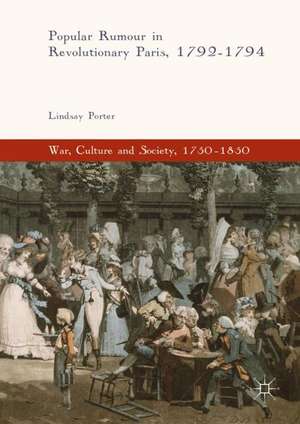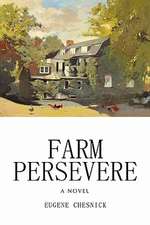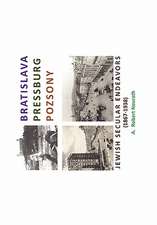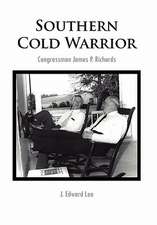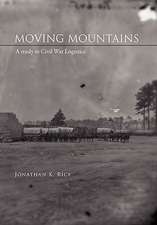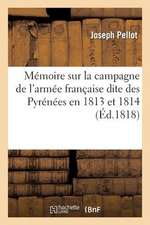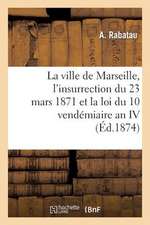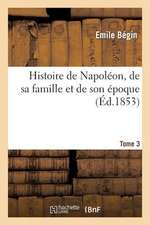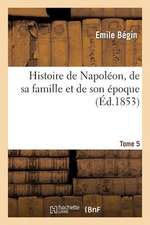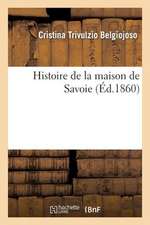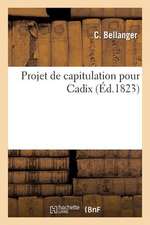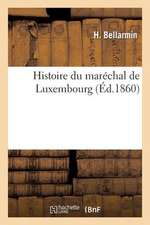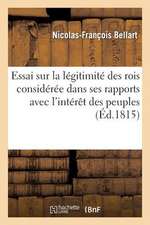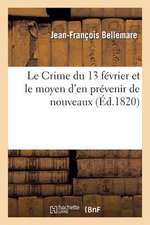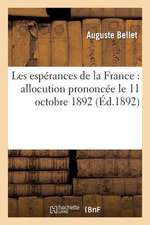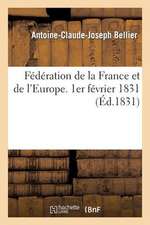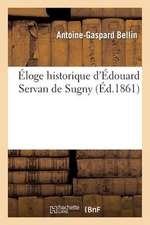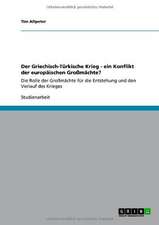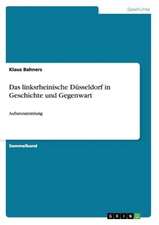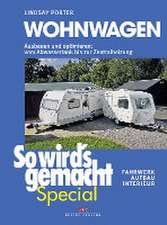Popular Rumour in Revolutionary Paris, 1792-1794: War, Culture and Society, 1750–1850
Autor Lindsay Porteren Limba Engleză Hardback – 18 ian 2018
This book examines the impact of rumour during the French Revolution, offering a new approach to understanding the experiences of those who lived through it. Focusing on Paris during the most radical years of the Jacobin republic, it argues that popular rumour helped to shape perceptions of the Revolution and provided communities with a framework with which to interpret an unstable world.
Lindsay Porter explores the role of rumour as a phenomenon in itself, investigating the way in which the informal authority of the ‘word on the street’ was subject to a range of historical and contemporary prejudices. Drawing its conclusions from police reports and other archival sources, this study examines the potential of rumour both to unite and to divide communities, as rumour and hearsay began to play an important role in defining and judging personal commitment to the Revolution and what it meant to be a citizen.
| Toate formatele și edițiile | Preț | Express |
|---|---|---|
| Paperback (1) | 524.55 lei 6-8 săpt. | |
| Springer International Publishing – 12 mar 2019 | 524.55 lei 6-8 săpt. | |
| Hardback (1) | 699.28 lei 6-8 săpt. | |
| Springer International Publishing – 18 ian 2018 | 699.28 lei 6-8 săpt. |
Din seria War, Culture and Society, 1750–1850
- 20%
 Preț: 691.13 lei
Preț: 691.13 lei - 15%
 Preț: 694.87 lei
Preț: 694.87 lei - 15%
 Preț: 705.18 lei
Preț: 705.18 lei - 15%
 Preț: 705.99 lei
Preț: 705.99 lei - 15%
 Preț: 587.20 lei
Preț: 587.20 lei - 15%
 Preț: 640.88 lei
Preț: 640.88 lei -
 Preț: 202.05 lei
Preț: 202.05 lei -
 Preț: 388.72 lei
Preț: 388.72 lei - 15%
 Preț: 644.95 lei
Preț: 644.95 lei - 18%
 Preț: 791.88 lei
Preț: 791.88 lei - 15%
 Preț: 647.40 lei
Preț: 647.40 lei -
 Preț: 196.88 lei
Preț: 196.88 lei -
 Preț: 385.08 lei
Preț: 385.08 lei -
 Preț: 396.62 lei
Preț: 396.62 lei -
 Preț: 213.58 lei
Preț: 213.58 lei - 15%
 Preț: 645.79 lei
Preț: 645.79 lei - 18%
 Preț: 895.45 lei
Preț: 895.45 lei - 18%
 Preț: 729.53 lei
Preț: 729.53 lei - 15%
 Preț: 643.34 lei
Preț: 643.34 lei -
 Preț: 396.40 lei
Preț: 396.40 lei -
 Preț: 388.13 lei
Preț: 388.13 lei - 15%
 Preț: 698.94 lei
Preț: 698.94 lei - 15%
 Preț: 646.43 lei
Preț: 646.43 lei - 15%
 Preț: 642.18 lei
Preț: 642.18 lei -
 Preț: 383.93 lei
Preț: 383.93 lei - 15%
 Preț: 700.61 lei
Preț: 700.61 lei - 18%
 Preț: 788.09 lei
Preț: 788.09 lei - 18%
 Preț: 723.38 lei
Preț: 723.38 lei - 15%
 Preț: 535.84 lei
Preț: 535.84 lei - 15%
 Preț: 694.04 lei
Preț: 694.04 lei - 18%
 Preț: 730.35 lei
Preț: 730.35 lei
Preț: 699.28 lei
Preț vechi: 822.68 lei
-15% Nou
Puncte Express: 1049
Preț estimativ în valută:
133.84€ • 139.20$ • 112.16£
133.84€ • 139.20$ • 112.16£
Carte tipărită la comandă
Livrare economică 13-27 martie
Preluare comenzi: 021 569.72.76
Specificații
ISBN-13: 9783319569666
ISBN-10: 331956966X
Pagini: 260
Ilustrații: XII, 267 p.
Dimensiuni: 148 x 210 x 18 mm
Greutate: 0.49 kg
Ediția:1st ed. 2017
Editura: Springer International Publishing
Colecția Palgrave Macmillan
Seria War, Culture and Society, 1750–1850
Locul publicării:Cham, Switzerland
ISBN-10: 331956966X
Pagini: 260
Ilustrații: XII, 267 p.
Dimensiuni: 148 x 210 x 18 mm
Greutate: 0.49 kg
Ediția:1st ed. 2017
Editura: Springer International Publishing
Colecția Palgrave Macmillan
Seria War, Culture and Society, 1750–1850
Locul publicării:Cham, Switzerland
Cuprins
Chapter I. Introduction.- Chapter II. ‘Prenez garde Citoyens!’: Policing Popular Rumour.-Chapter III. ‘Un bruit de frayeur se répand’: Informal Communication Networks and the Creation of Rumour.- Chapter IV. Rumour, Riots, Feasts and Famines.- Chapter V. Rumour and Community: Solidarity and Conflict in the Sans-Culotte Neighbourhoods of Year II.- Chapter VI. Rumour, Reputation and Identity.- Chapter VII. Rumour, Denunciation and Terror.-Chapter VIII. Conclusion.- Archival Sources.- Index.
Recenzii
“ Its changing content, identify the groups through which it passed, and study the ways that they made sense of it as it ebbed and flowed, crossing paths with other means of communication such as images, graffiti, songs, letters, and all varieties of the printed word.” (Robert Darnton, H-France Forum, Vol. 14 (2), 2019)
“The study of rumor during the French Revolution is a wonderful subject, … . Lindsay Porter is well aware of this work, and one of the virtues of her book is to recognize the ways that revolutionary rumor renewed and built on older themes.” (David Garrioch, H-France Forum, Vol. 14 (2), 2019)
“The study of rumor during the French Revolution is a wonderful subject, … . Lindsay Porter is well aware of this work, and one of the virtues of her book is to recognize the ways that revolutionary rumor renewed and built on older themes.” (David Garrioch, H-France Forum, Vol. 14 (2), 2019)
Notă biografică
Lindsay Porter is the author of Who are the Illuminati? (2005) and Assassination: A Political History (2010), both of which were translated into several languages. She also contributed to Conspiracy Theories in American History: An Encyclopedia (2001). Her current research interests are in popular rumour and public opinion in the eighteenth century.
Textul de pe ultima copertă
This book examines the impact of rumour during the French Revolution, offering a new approach to understanding the experiences of those who lived through it. Focusing on Paris during the most radical years of the Jacobin republic, it argues that popular rumour helped to shape perceptions of the Revolution and provided communities with a framework with which to interpret an unstable world.
Lindsay Porter explores the role of rumour as a phenomenon in itself, investigating the way in which the informal authority of the ‘word on the street’ was subject to a range of historical and contemporary prejudices. Drawing its conclusions from police reports and other archival sources, this study examines the potential of rumour both to unite and to divide communities, as rumour and hearsay began to play an important role in defining and judging personal commitment to the Revolution and what it meant to be a citizen.
Caracteristici
Examines how rumour shaped perceptions of the French Revolution Analyses the role of rumour in community life, through a range of police reports and archival source Explores how these narratives enabled communities to interpret current events through familiar language and imagery Includes supplementary material: sn.pub/extras Includes supplementary material: sn.pub/extras
